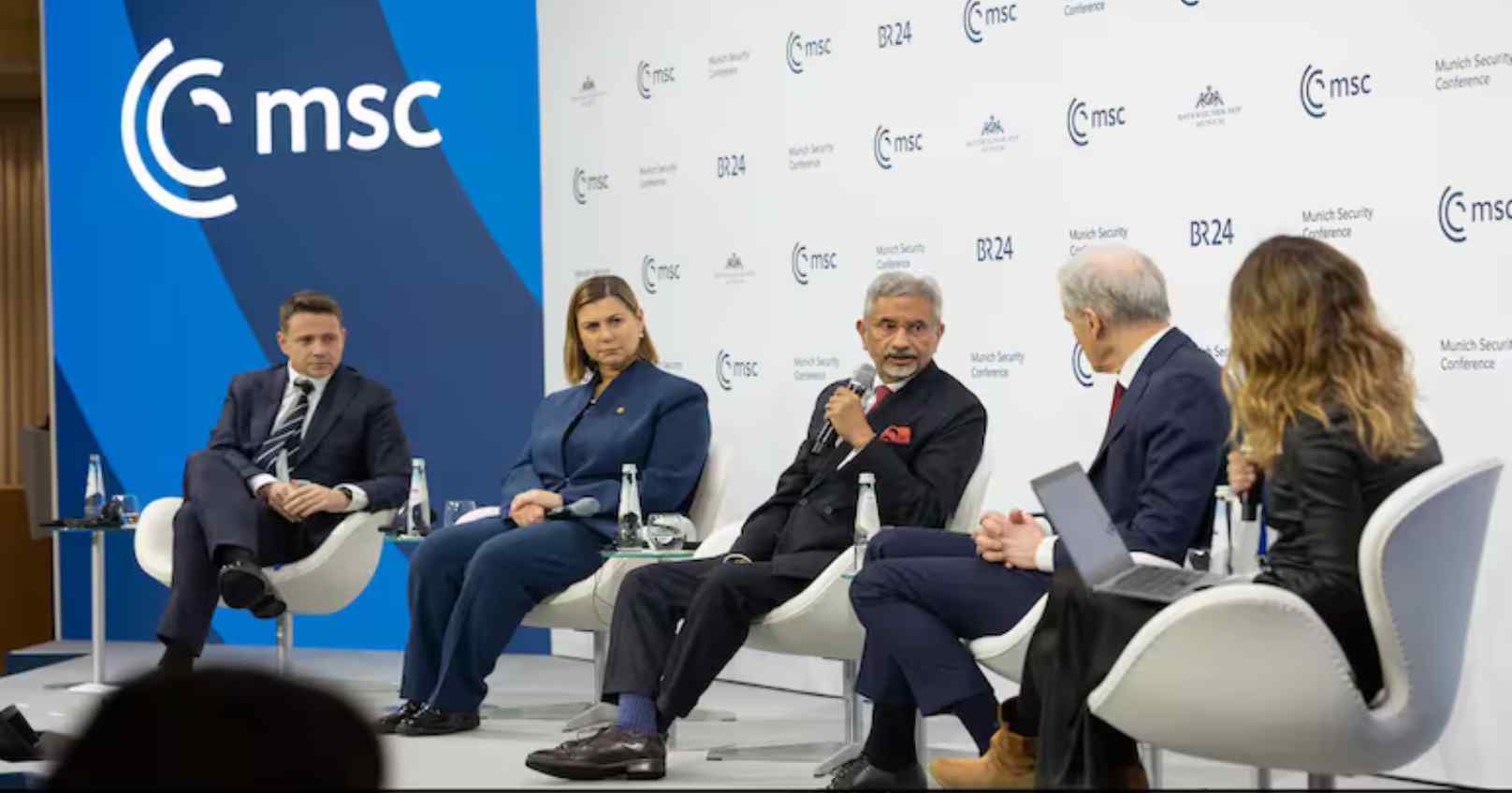External Affairs Minister S. Jaishankar, on Friday, criticized the West for perceiving democracy as an exclusively Western trait. Speaking at the Munich Security Conference during a panel discussion titled 'Live to Vote Another Day: Fortifying Democratic Resilience,' Jaishankar shared the stage with Norway's Prime Minister Jonas Gahr Store, US Senator Elissa Slotkin, and Warsaw Mayor Rafal Trzaskowski.
Jaishankar expressed his disagreement with the prevailing view that democracy is under global threat. He highlighted India's democratic robustness, emphasizing the active participation of Indian citizens in electoral processes. Displaying the ink mark on his finger as proof of his recent vote in Delhi, he noted that India conducts elections involving approximately 900 million eligible voters, with about 700 million exercising their franchise. Votes are counted within a day, and election outcomes are universally accepted without dispute.
Challenging the notion of democratic decline, Jaishankar stressed that voter turnout in India has risen by 20% over the decades. He asserted that democracy in India is thriving and continues to deliver tangible benefits to its citizens.
Responding to Senator Slotkin's remark that democracy does not guarantee food security, Jaishankar countered by highlighting India's welfare programs. He cited the government’s provision of nutritional support and food assistance to 800 million citizens as evidence that democracy, in India's context, directly contributes to improving livelihoods.
Jaishankar further questioned the West's consistency in promoting democratic values. He observed that while Western countries uphold democratic principles domestically, they often support non-democratic regimes abroad. This contradiction, he suggested, undermines the credibility of Western advocacy for democracy.
Addressing whether the Global South still views democracy as an aspirational system, Jaishankar acknowledged that each nation has unique characteristics. However, he affirmed that India chose the democratic path post-independence because its society was inherently pluralistic and consultative.
He highlighted that, despite facing numerous economic and social challenges, India remained committed to democracy. This, he suggested, makes India a model worthy of Western recognition. He urged the West to appreciate successful democratic examples beyond its own borders if it genuinely seeks the global advancement of democracy.







